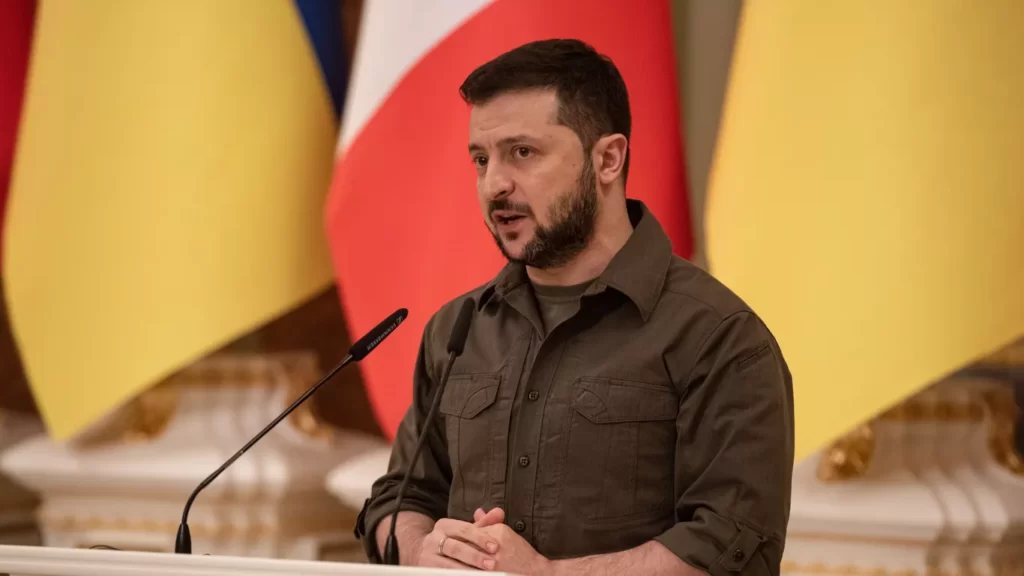Ukrainian President Volodymyr Zelensky called on the international community Monday to immediately act to stop a Russian blockade of his country’s ports and prevent a global food crisis.
Driving the news: Zelensky said the Russian military again launched missile strikes on the Odessa region and, “for the first time in decades, there is no usual movement of the merchant fleet, no usual port functioning” in the strategic southern city on the Black Sea.
- “Probably this has never happened in Odessa since World War II,” Zelensky continued in his address. “Without our agricultural exports, dozens of countries in different parts of the world are already on the brink of food shortages. And over time, the situation can become downright terrible.
- “This is a direct consequence of Russian aggression, which can be overcome only together — by all Europeans, by the whole free world,” he added. It can be overcome by putting pressure on Russia, by effectively forcing Russia to stop this disgraceful war.”
What they’re saying: European Council President Charles Michel seemed to back Zelensky’s calls in a statement after seeing “silos full of grain, wheat and corn ready for export” during a visit to Odessa on Monday.
- “This badly needed food is stranded because of the Russian war and blockade of Black sea ports. Causing dramatic consequences for vulnerable countries,” he said. “We need a global response.”
Meanwhile, Ukrainian officials said Russian forces were continuing to pound Odessa with missiles on Monday — including an airstrike on a shopping center that killed one person and wounded five others.
The big picture: The United Nations has pointed to Russia’s military invasion as a key driver in the soaring global prices of food commodities including grains and vegetable oils.
- UN World Food Program chief David Beasley noted to CBS’ “60 Minutes” earlier this month that Ukraine was the “breadbasket of the world” with enough food to feed 400 million people, so Russia’s military assault was “creating havoc for the poorest of the poor around the world,” but it would also “affect everybody.”

Source: axios.com

